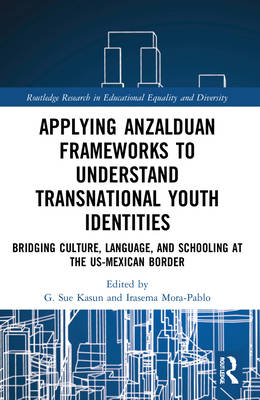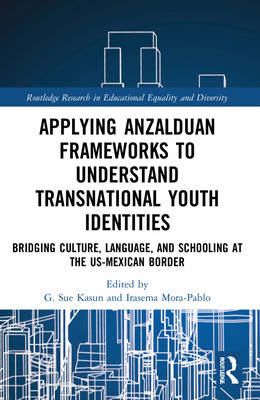
- Afhalen na 1 uur in een winkel met voorraad
- Gratis thuislevering in België vanaf € 30
- Ruim aanbod met 7 miljoen producten
- Afhalen na 1 uur in een winkel met voorraad
- Gratis thuislevering in België vanaf € 30
- Ruim aanbod met 7 miljoen producten
Applying Anzalduan Frameworks to Understand Transnational Youth Identities
Bridging Culture, Language, and Schooling at the US-Mexican Border
Omschrijving
Framed by the theoretical work of Gloria Anzaldúa, this volume focuses on the cultural and linguistic practices of Mexican-origin youth at the U.S. border to explore how young people engage in acts of "bridging" to develop rich, transnational identities.
Using a wealth of empirical data gathered through interviews and observations, and featuring perspectives from multinational and transnational authors, this text highlights how youth resist racialized and raciolinguistic oppression in both formal and informal contexts by purposefully engaging with their heritage culture and language. In doing so, they defy deficit narratives and negotiate identities in the "in-between." As a whole, the volume engages issues of identity, language, and education, and offers a uniquely asset-based perspective on the complexities of transnational youth identity, demonstrating its value in educational and academic spaces in particular.
This text will benefit researchers, academics, and educators with an interest in the sociology of education, multicultural education, and youth culture more broadly. Those interested in language and identity studies, as well as adolescence, schooling, and bilingualism, will also benefit from this volume.
Specificaties
Betrokkenen
- Uitgeverij:
Inhoud
- Aantal bladzijden:
- 180
- Taal:
- Engels
- Reeks:
Eigenschappen
- Productcode (EAN):
- 9781032043548
- Verschijningsdatum:
- 25/09/2023
- Uitvoering:
- Paperback
- Formaat:
- Trade paperback (VS)
- Afmetingen:
- 152 mm x 229 mm
- Gewicht:
- 272 g

Alleen bij Standaard Boekhandel
Beoordelingen
We publiceren alleen reviews die voldoen aan de voorwaarden voor reviews. Bekijk onze voorwaarden voor reviews.










